#Congolese-Rwandan
Text
48 Hours Vincent Karega Must Leave - DRC Just Warned Rwanda
48 Hours Vincent Karega Must Leave – DRC Just Warned Rwanda
Democratic Republic of Congo (DRC) has given Rwandan ambassador Vincent Karega 48 hours to leave the country in retaliation for Rwanda’s alleged support of the M23 rebels in the Congo’s eastern provinces.
The rebel group, which Congolese authorities accuse Rwanda of backing but Rwanda denies, seized the town of Kiwanja in eastern Congo on Saturday, effectively cutting North Kivu’s capital Goma…
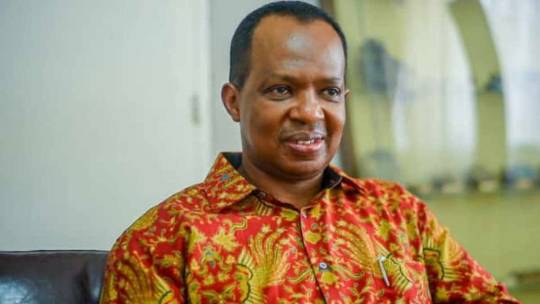
View On WordPress
0 notes
Text
Very worrying news from the DRCongo.
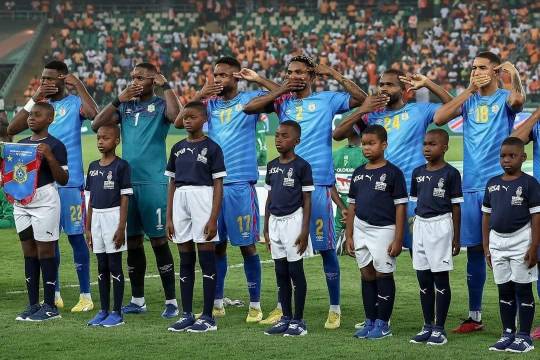
You saw the national football team cover their mouth, and point their fingers to their head in the CAN match against Ivory Coast last Wednesday?
It was to raise awareness for the surge in violence committed by M23 rebels in eastern Congo - with support from a neighbouring government, to destabilize a region that "happens to hold a lot of the world's very valued minerals".
People are being murdered, houses are being burnt. One again, thousands are fleeing their home, and join the refugee camps around Goma that already in October last year housed around 600.000 people.
Also Goma itself is surrounded, the supply lines for food from the country side to the city interrupted.
Why can't the international community do nothing more than empty declarations of solidarity and wishing for peace. The UN mission - which hardly had a mandate to intervene in case of violence against Congolese citizens - has had no positive impact.
Maybe we could finally consider putting pressure one the Rwandan goverment and its allies to actually put an end to these 30 years of violence and ruined lives in this region.
The same region that provides the world with materials for our phones, electrical and solar panels btw.
https://www.reuters.com/world/africa/un-experts-say-rwanda-has-intervened-militarily-eastern-congo-2022-08-04/
127 notes
·
View notes
Text
Emergency Relief for Displaced Children in DRCongo
Funds will be given to the nonprofit organization Focus Congo, which is on the grounds in Kivu, East Congo.
Donate to Goma Actif
A nonprofit charity that provides essentials, recreation, and unity to displaced Congolese people in North Kivu.
Help Stephen Get an Urgent Operation for a Hernia
Extremely close to the goal!
Action Aid UK
An organization that helps women and girls living in poverty. They also work in emergency situations, sending aid to places in crisis.
Let's Take Action for Congo
Funds will be given to @/landry0204 (on insta/tiktok), providing food, water, shelters, and social assistance to displaced refugees in Goma.
Help Women and Children in Congo
A survivor of the Rwandan and Congolese genocide wants to raise funds to support Congo.
Help to Relocate Families in Congo
Help a family find safety in Kalemie.
East of DR Congo Genocide - Survivors, Help Needed
The Congolese Community in Ireland is raising funds to support and aid Congo.
Fundraiser to Help Orphans Move to Safer Areas
Support the Busimba Family to Rebuild Their Lives
Congo to Columbia: Help a Refugee Come to Columbia
Genocide in Goma, D.R. Congo
Help raise funds to provide aid to displaced Congolese families.
Self Defense Maman
An organization that provides self-defense training and emotional support to women in East Kivu.
39 notes
·
View notes
Text
FREE CONGO!’ PROTESTS ERUPT IN PARIS
Hundreds of protesters hit Parisian streets on 17 February, heading toward the Rwandan embassy to denounce the African state’s alleged complicity in the resource extraction and violence occurring in the eastern part of the Democratic Republic of the Congo (DRC). This is just one in many recent actions Congolese people have taken calling for the liberation of their country.
The Congo has been drained and pillaged for multiple generations to fuel the Global North’s technological advancements. Belgium built some of its initial wealth and standing as an industrialised state by plundering Congolese ivory and rubber in the 19th century and early 20th century. The native Congolese were subjected to brutality, such as amputations, if they could not fulfil rubber quotas. That international scandal forced the colonial system to rebrand itself and find less apparent ways to perpetuate the same violence.
Since the mid-20th century, colonial rule has given way to neo-colonialism. The violence required to extract resources for the global capitalist economy has created a refugee crisis, with about 7 million Congolese internally displaced. Children have been documented digging for minerals, such as cobalt, so industrialised countries can reap profit. Meanwhile, neighbouring Rwanda and Uganda are accused of playing middlemen that help the West secure access to Congolese resources.
Until the DRC is free, we will continue to fight, mobilise and organise wherever we may be.
How do you see best to defend Africa against resource extraction that doesn’t benefit the people?
37 notes
·
View notes
Text
[The East African is Kenyan Private Media]
French hard-left leader Jean-Luc Melenchon on Thursday denounced the "expansionist aims" of Rwanda in Eastern Democratic Republic of Congo (DRC), as fighting flared between rebels and pro-government armed groups.
"I wanted to reaffirm my fraternity with the Congolese people, at a time when they are facing a challenge that is totally imported," Melenchon said, after a meeting with DRC President Felix Tshisekedi.[...]
Elections are due on December 20, with Tshisekedi a candidate.
Independent UN experts, Kinshasa as well as Paris and Washington have accused Rwanda of backing the Tutsi-led M23 rebel group, which has captured swathes of territory in eastern DRC since 2021.
Kigali has denied the accusation.[...]
Melenchon said the M23 rebel movement "articulated by neighbouring Rwanda", reflected a "deliberate desire to disrupt... the functioning of democracy in the Congo" and challenge its "sovereignty".
He added that he hoped for a return to a ceasefire and that "Rwanda abandons the expansionist aims that we have heard Rwandan President Paul Kagame declare".
Melenchon arrived in the DR Congo on Tuesday for a one-week stay, after being invited by a university and accompanied by a delegation of three MPs from his France Unbowed party.
27 Oct 23
29 notes
·
View notes
Text
In the summer of 2022, I crossed from Rwanda into the besieged Congolese city of Goma. The slick Rwandan border police and their Chinese-made black polymer carbines stood in stark contrast to the weary Congolese soldiers’ ancient Kalashnikovs. “We can’t invade Rwanda or Uganda,” a hardened Congolese provincial politician admitted to me. He slid his fingers across his neck, adding, “But we can’t negotiate with a knife to our throat.”
Since that conversation, Rwandan troops and their local March 23 Movement (M23) proxy forces have completely encircled Goma. While the Rwandan government simultaneously denies supporting M23 while justifying its intervention as necessary for Rwandan security, the direct involvement of Rwanda has been extensively documented by the United Nations and acknowledged with alarm by the U.S. State Department.
Humiliated, many Congolese are now ready to take the war to its source. The prospect of interstate war in the region looms once more. The last time these states committed to war, as many as 5.5 million people died. The United States is the leading bilateral donor to Rwanda, giving over $170 million in assistance last year to a country where more than 40 percent of the national budget is made up of international aid. The U.S. government needs to use its overwhelming leverage to keep this deadly inferno in check.
Rwandan support for M23 introduces an unacceptable risk of regional escalation. Congolese President Felix Tshisekedi is managing the aftermath of his recent controversial reelection; Burundi’s elite is well armed and divided; Uganda is approaching a leadership succession crisis as its aging president, 79-year-old Yoweri Museveni, promotes his unpredictable son (best known for his undiplomatic use of social media) to head the armed forces; and Rwanda’s veneer of development hides its own volcanic tensions.
All these countries now have troops staring one another down in eastern Democratic Republic of the Congo. It would be a mistake to underestimate the frustration felt by many Congolese and the willingness to challenge Rwanda on its own territory.
Such a major security threat should be unacceptable to the United States. The Islamic State, also active in eastern Congo, is gaining ground and staging regional terrorist attacks as Congolese and Ugandan troops reposition to confront M23. There are concerns that Congo may turn to Russia to buttress its struggling army, although thus far Kinshasa has stuck with non-Russian (primarily Romanian) military contractors. Congo’s most effective weapon in the conflict is the recent arrival of Chinese attack drones. U.N. peacekeepers and the incoming South African-led multilateral military intervention are destined for retreat, humiliation, or quagmire if the conflict drags on. No external actor has the will to commit the resources needed to defeat M23 on the battlefield.
There are also less tangible but more serious reputational costs for U.S. inaction. Tshisekedi vocally threw his weight behind the United States against outright Chinese mining dominance and in support of U.N. resolutions condemning Russia’s war in Ukraine. If the United States is serious about attracting partners in Africa, it needs to support them when they are threatened.
That doesn’t mean turning a blind eye if Tshisekedi attempts to centralize power illegally, but it does mean forcing the Rwandans to the negotiating table. More broadly, not responding to aggression in central Africa reflects poorly on the Biden administration’s public commitment to international norms and fuels accusations of hypocrisy as Washington condemns Russian aggression in Ukraine.
The goodwill toward the United States in Congo is precarious, tainted as it is by the memory of steady support to Uganda and Rwanda throughout their invasions of Congo between 1996 and 2003. But Washington has also shown that it can flex its muscle when needed—and get the results it seeks.
In 2012, the U.S. and U.K. governments dramatically cut aid to Rwanda in response to the first M23 rebellion. It was not a smooth process, and the decision to cut aid only followed a media storm over M23’s takeover of the provincial capital of Goma. (Learning from this experience, the current rebellion initially encircled rather than captured the high-profile city.) However, it was effective. Rwanda withdrew support from M23 while remaining a U.S. aid recipient. The Congolese security situation temporarily improved.
Until the resurgence of M23 in late 2021, Rwanda’s military action in the Congolese provinces of North and South Kivu was restricted to covert actions, proxy conflicts, and consensual interventions with Congolese government approval. While occasionally destructive (particularly in 2019 in South Kivu), these actions did not provoke widespread countermobilizations or displacement.
In 2022, the U.S. government response started slowly and gradually ramped up pressure while maintaining a public stance of neutrality. Congolese support for the sanctioned Democratic Forces for the Liberation of Rwanda (FDLR), a Congo-based Rwandan rebel group led by members of the genocidal regime overthrown in 1994, was raised on equal footing with Rwandan support for M23, effectively endorsing the Rwandan narrative that the M23 rebellion was a necessary security measure.
U.S. Secretary of State Antony Blinken, who met with both Tshisekedi and Rwandan President Paul Kagame in August 2022, continued to reiterate equal responsibility. While stern words were supposedly exchanged behind closed doors, no sanctions resulted. The U.N. groups of experts continued to observe multiple phases of offensives and consolidation by M23 with direct Rwandan military support.
Finally, after year and eight months of conflict, six individuals were sanctioned in August of 2023: three FDLR commanders, one M23, one Congolese general, and one Rwandan general. The Rwandan general was promoted in response. The small amount of military aid given to Rwanda was only cut in early October 2023. There were no cuts to development programming, and Rwanda’s eligibility in the flagship U.S.-Africa trade agreement, the African Growth and Opportunity Act, was renewed.
Only in February, as M23’s forces finally turned to march on Goma, did the State Department put out a decisive statement condemning Rwanda and the escalation “caused by the actions of the Rwanda-backed, U.S.- and UN-sanctioned M23 armed group.”
Although necessary, taking a firmer line with Rwanda will have costs. The Rwandan government is a famously responsive security, trade, and development partner in a region infamous for poor governance. Since the aid cut in 2012, the Rwandan government has continuously strived to build this reputation as a good partner into diplomatic leverage to avoid a repeat of that embarrassing rebuke. It may have found that leverage in Mozambique and the Central African Republic, where Rwandan military forces offered badly needed security, allegedly subsidized through French development aid.
Washington is heavily invested in successful development programs enabled by the relatively effective governance of the Rwandan state. Cutting effective development programs, endangering budding business relationships, and retracting military partnerships are not desirable for the United States. Yet these costs pale in comparison to the risks of continuing escalation.
There are also concerns that U.S. perceptions of Washington’s regional interests may be distorted by an overly sympathetic view toward Rwanda by officials at the U.S. Embassy in Kigali. This concern has been raised privately by some U.S. officials in Uganda and Congo toward their Kigali-based colleagues.
Effective domestic development programs, consistent engagement, and tight control of speech by the image-conscious Rwandan state give Kigali-based international entities a view that is devoid of opposition voices. This concern is echoed among many regional political observers who see Washington as soft on Kigali. In Congo, this observation manifests in popular conspiracy theories of a grand CIA-orchestrated Rwandan ethnic imperial project.
Regardless of the cause, indecision undermines the Biden administration’s regional foreign-policy objectives of building bridges with South Africa—a leading economy on the continent— supporting a growing partnership with Kenya, and reaching strategic mineral deals in Congo, all of which take precedence over the strained partnership with the relatively small country of Rwanda.
If Rwanda withdraws its forces from Mozambique and CAR, the United States has a menu of multilateral or bilateral options to mitigate the consequences. In Mozambique, regional multilateral forces are already deployed and could be empowered. In CAR, bilateral security arrangements with the United States are rumored to be in the negotiation stages. Unlike in those conflicts, there are few good tools to stop interstate escalation in Congo once underway. For the moment, however, the U.S. government still can influence Rwanda and Congo.
Getting Rwanda to negotiate meaningfully requires pressure. While the overstretched U.S. foreign-policy apparatus must prioritize the ongoing conflict in Ukraine, war in the Middle East, and security threats in East Asia, proactive engagement in Africa’s Great Lakes region will save energy and resources in the future.
Reconstructing Congo after 2003, even to its current fragile state, cost billions of dollars, and millions of lives were lost in the fighting. The United States cannot afford another major conflict there, even one that appears for now to lie on the periphery of U.S. interests.
5 notes
·
View notes
Text
By indirectly causing instability in the locations where coltan is found in surplus in the DRC, Rwanda has managed to siphon billions of dollars worth of the valuable mineral to attract foreign investment over the years. Despite the Rwandan government denying all claims, the UN has presented conclusive evidence of the state funding the M23, and continuing to spill Congolese blood on Congolese soil without remorse.
Ruth Mudingayi in Africa Is A Country. Congo beyond the hashtags
While social media has amplified calls for social justice in long-ignored parts of the world, it should only be the beginning of our activism.
WHAT IS HAPPENING IN CONGO?
3 notes
·
View notes
Text
ble
frustrated w socmed posts abt sudan and the congo cuz its so full of catchphrases and buzzwords it teaches you nothing. when ppl were first talking abt the congo they were only like “why isn’t anyone talking abt the exploitation :((“ without mentioning the war btwn rwandan and ugandan backed groups thats been happening for literally my entire life for which this exploitation and mass torture is context + a tactic. like you think that wld be relevant. and w sudan ppl were being rly confusing too like “the real war is against the sudanese ppl” without mentioning any of the non-raf/saf civilian resistance groups who r also engaging in armed struggle against the saf/rsf !! like the slm. it’s just so messy dont get your info from social media guys. ofc actual sudanese and congolese can do whatever they want im just bitching abt the ways ppl talk abt things here. also im a total hypocrite
3 notes
·
View notes
Text
"We organized the very last show in 2023..."
Whether to address societal issues or personal traumas of people, forum theatre coupled with psychodrama have been used by NGOs in a number of tormented African nations.
The Brazilian theatre practitioner, Augusto Boal, is known as the creator of forum theatre – an interactive form of theatre in which the audience becomes “spect-actors” when they intervene and change the course of the play. Psychodrama occurs as the actors portray their real-life struggles and explore their anguishes. Spreading messages of awareness and resilience through masquerade and embryonic dramas has been around in Africa since times immemorial. But Boal’s method of forum theatre is now being applied in an effort to unite Africans in regions of tension.
In the book Art and Conscientization (2015), Claus Schrowange writes about his experiences of developing and organising plays with groups in Uganda, Rwanda, South Sudan, and the Democratic Republic of Congo “for the promotion of peace, human rights, and sustainable development”.
According to him, “The ideal Forum Theatre performance is indoor with 20 to 100 spectators, in a hall of the size of one to three classrooms. The larger the audience, the less intense the program. ... Actors should not use microphones, not even during open air performances. Microphones destroy the natural voice which is necessary to project emotions to the audience. ... Our actors only wear uniform T-shirts, most of the time in black and white, with black trousers or skirt. They remove wristwatches, necklaces, earrings and any other item that attracts unnecessary attention. In order to open the senses and energy flow and make better use of their body, they always perform barefoot. ... The play is the heart of the activity. Our goal is to leave the audience astonished, inspired, confused, and enlightened at the same time. We motivate them to become active in their daily lives and within their limited means and powers, to act against all kinds of injustice, violence and Human Rights abuses. ... The actors don’t need to be experts in theatre, but they have to be open to discover themselves and share their real emotions on stage. Actors should act in the language they are using in their own daily life. When it is not possible, more emphasis should be given on the non-verbal expression and the verbal part should be reduced to a minimum.”
However, theatrical attempts to unite different African communities, especially those engaged in decades-long violence against each other, aren't easily welcomed. In areas prone to violence between militant groups and government forces, many adults and children end up becoming soldiers to survive in the absence of employment or education opportunities. The children get drugged and the women and girls are raped by armed men. The forcibly-displaced surviving civilians have deep emotional scars and distrust for NGOs.
“Africa independence was a masquerade, and most of the scourges that devastate this region are consequences of government irresponsibility, and the lack of some politicians’ awareness. They promulgate laws and change them, but they don’t ensure that the entire population has understood them: the first victims of this situation are not enlightened. This is the environment in which our Theatre of the Oppressed group is working,” writes Eliezer Kasereka who, along with his friend, once violently protested against plays organised by Schrowange in Kiwanja because his Theatre of the Oppressed mixed Rwandans and Congolese when there were allegations that Rwanda supported the rebel groups operating in eastern Democratic Republic of Congo. But Schrowange and his group were able to influence Kasereka into experiencing “the power that Theatre of the Oppressed has to change minds and heal hearts”.
Since the beginning of 2016, Joseph Tsongo, the founder and CEO of Amani-Institute ASBL, and his friend Eliezer Kasereka, supported by the NGO APRED-RGL, began to use “participatory forum theater in psychodrama style” to help the child soldiers, who had managed to escape from the deadly clutches of armed groups, reintegrate into the society that feared them. They used to host theatre workshops at least once a week in the north-eastern parts of the Democratic Republic of Congo.
Last month, we contacted Mr. Tsongo to learn when the last forum theater was held by him, considering the present crisis in the country. On April 2nd, 2024, he said, ...we organized the very last show in 2023 due to the deteriorating security situation in the region, as well as due to a lack of necessary resources. (His original reply in French: En effet, nous avions organisé le tout dernier spectacle en 2023 et cela en raison de la détérioration de la situation sécuritaire dans la région mais aussi par manque de moyens nécessaires.)
In this regard, worthy of mention is Milo Rau’s solution-driven political theatre, The Congo Tribunal, involving the “victims, perpetrators, witnesses and analysts of the Congo War in Bukavu/Eastern Congo”. It explores the war in Congo – triggered by the West-sponsored Rwandan Genocide (1994) and fuelled by the powerful capitalists’ greed for the country’s natural resources necessary to run the technology of the 21st century – that has claimed the lives of over six million Congolese people. Based on The Congo Tribunal, Rau’s opera called Justice is “the first lyric work on the crimes of transnational companies ever” developed with the victims of the Glencore copper mine accident at Kabwe, aiming to raise funds for them. Justice will be taking the audience "to the heart of the Congolese mining industry", at Tangente St. Pölten Festival in Austria on 30th April, 2024.
However, the Congolese people, struggling with the harsh realities of civil wars and continuous exploitations by the economically powerful nations, need much more international attention than they are receiving now.
#talk#finds#free congo#free drc#dr congo#eyes on congo#congo genocide#save congo#democratic republic of the congo#drc#theatre#musical theater#forum roleplay#Forum theatre
2 notes
·
View notes
Text
The Second Congo War has never truly ended:
The first Congo War ended in 1997, the second is the reason for the still-ongoing war in the eastern DRC today. This war, accordingly, long predates the current round of fighting in Gaza and reflects patterns of cultural flexing by Rwanda in particular and Uganda, from time to time, that started the new war and with the Rwandans not only haven't stopped so much as taking pauses so they can reload and clean off the machetes to go and kill more Congolese.
People who think that all history begins and ends within the boundaries of the state of Israel since 1947 might be genuinely stunned to realize this but this is not in fact true in other parts of the world. The animosities stored up here begin with the war of the 1960s and the 1990s, and reflect the simple reality that the DRC does not have the military power to evict the Rwandans.
#lightdancer comments on current events#black history month#military history#second congo war#free congo#this is what people are wanting to free congo from#the five of them not in that country who have any idea of its history that is
2 notes
·
View notes
Text
Two weeks into a military trial over the killing of more than 50 civilians in eastern DR Congo, the circumstances of how soldiers came to open fire are still unclear.
Who gave the order, at what point and why did Congolese soldiers shoot to prevent an anti-UN protest in the city of Goma are key but as yet unanswered questions.
Witnesses -- some taking the stand with their faces masked by cagoules to hide their identity -- have cast doubt on the official version of events.
In a region long plagued by violence in the volatile east of the Democratic Republic of Congo, the incident has raised tensions.
On August 30, soldiers stopped a religious sect from holding a demonstration against the presence of United Nations peacekeepers in the DRC.
At least 57 people were killed, according to Interior Minister Peter Kazadi.
Less than a week after the crackdown, six soldiers including two officers of the elite Republican Guard went on trial charged with crimes against humanity and violating orders.
Several ministers visited the scene of the killings while the government has promised that justice will be done.
Kazadi, among others, has said the Republican Guard intervened after the lynching of a police officer by members of the religious sect.
Witnesses -- including two army colonels but also sect members and local residents -- however say the operation began before the police officer died.
At least five people were killed in the religious sect's radio premises, but most died in its church, according to witness testimony.
At the time that soldiers were heading towards the church, "the police officer was not yet dead", a military intelligence officer told the court.
A few days after giving his testimony, the witness was in hospital due to a "poisoning", the court heard.
On one point, however, everyone agrees.
Before the shooting began, talks between the army and the sect were under way and progressing calmly.
Four people had been chosen to be the emissaries of a message to be delivered to the UN mission.
In the middle of the negotiations however, soldiers opened fire on unarmed sect members.
It remains to be established whether Mike Mikombe, one of the accused Republican Guard officers who has denied the charges, gave the order to shoot.
And, if he did, whether he was following orders or acted on his own initiative.
He suggested in court that he had been misled by an operational order identifying the sect members as proxies of M23 rebels and the Rwandan army.
The M23 has captured swathes of territory in North Kivu province since 2021 -- one of several militias holding sway over much of the region despite the presence of peacekeepers.
Independent UN experts, the Kinshasa government and several Western nations including the United States and France accuse Rwanda of actively backing the Tutsi-led M23 -- claims that Rwanda denies.
More than 140 civilians including around 30 minors were arrested during the August 30 army operation.
They were accused of participation in an insurrectional movement, conspiracy and murder.
According to one mother, who is still trying to see her 17-year-old son being held in Goma prison, soldiers took him from his home, accusing him of being a rebel.
She has begged authorities to free him so he can go back to school.
The treatment of the victims has also sparked tension.
Families were only able to bury the dead late on Monday after the bodies were left decomposing in a Goma military hospital for 20 days.
Relatives were banned from visiting the morgue to identify their loved ones until September 12.
The trial is due to continue on Wednesday after a two-day break.
4 notes
·
View notes
Note
lemme make a list of some non western songs. Not all of them will be Arabic, there’s some African singers here too.
Habibi - KAYAM (Tanzanian/Kenyan/British/Indian - Canadian born)
Naïf - GIMS (also known as Maître Gims, Congolese French) (VOCALSSSSS) (I could make a whole list of him and the next artist I’m about to put down)
L’enfer - Stromae (Rwandan-Belgian) (extremely popular, you might have heard Papaoutai or Alors on Danae. Papaoutai is about his father who died in the Rwandan genocide ☹️ you should listen to it, it’s very sad)
Sante - Stromae
Mets moi bien - GIMS (change of pace lol)
Born without a Heart - Faouzia (Moroccan-Canadian)
Puppet - Faouzia
Ghazaleh- Dana Saleh (Jordanian/Palestinian/American)
Call Me - MANAL (Moroccan)
Jayeb Khbari - RYM (Moroccan)
Very Few Friends - Saint Levant (Palestinian/Serbian/Algerian/French)
FaceTime - Saint Levant
Sability - Ayra Starr (Nigerian - Beninese)
I think that’s enough for now lolllll sorry
thank you so much!!!! i'll listen to them as soon as i have a chance 🫶🫶
6 notes
·
View notes
Text
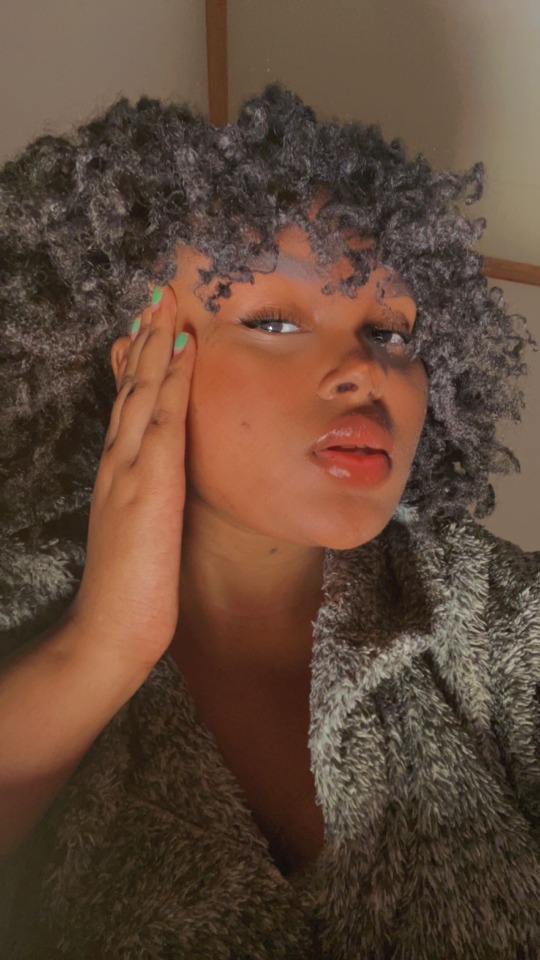
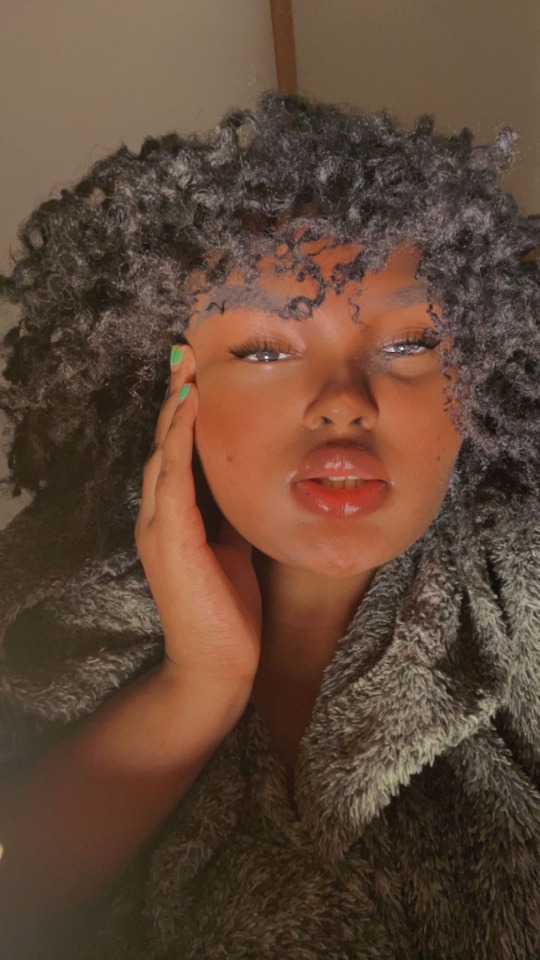
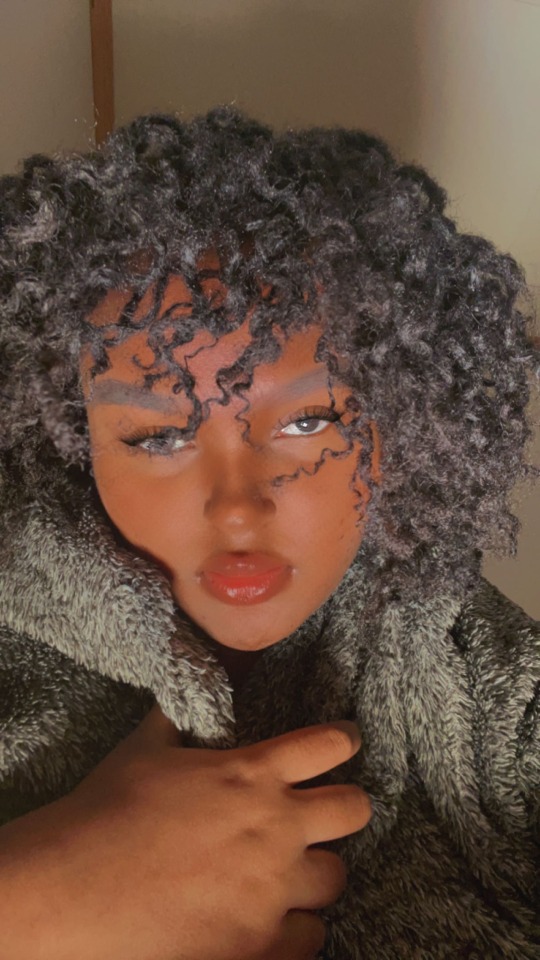
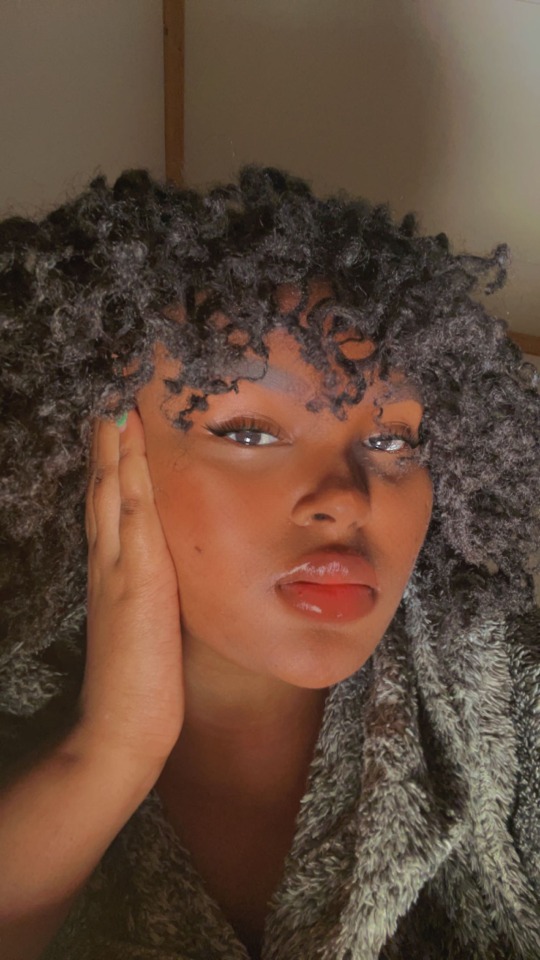
There’s something about Congolese/ Rwandan women 🇨🇩🇷🇼
3 notes
·
View notes
Text
[France 24 is French Media]
The experts said there was "substantial evidence" of direct Rwandan army intervention and of Rwandan support for the region's rebels, in such forms as weapons, ammunition and uniforms.
The report comes as the Democratic Republic of Congo has repeatedly accused Rwanda of backing the M23.
The militia has captured swaths of territory in the DRC's restive east since it emerged from dormancy late last year.
Rwanda has repeatedly denied that it supports the rebels, but the United States and France, among other Western countries, have agreed with the DRC's assessment. [...]
A Tutsi-led group, the M23 first leapt to international prominence when it captured the eastern Congolese city of Goma in 2012 before being driven out and going [underground] the following year.
But it re-emerged in late 2021 after the rebels claimed the DRC had ignored a promise to integrate them into the army.
The M23 has since captured swathes of territory in eastern North Kivu province, which borders Rwanda, and displaced hundreds of thousands of people.
22 Dec 22
12 notes
·
View notes
Text
Day Sixty-Seven
You know those low hurdles athletes in lots of sports use in their training drills? One of my sprinters actually broke one today, which was a first in my coaching career, and the culminating moment of a generally hilarious practice (involving a boys vs girls competition on agility drills; a sing-along to a playlist full of Kesha, Taylor Swift, Backstreet Boys, and such; and a lot of random giggling from overtired, ready-for-vacation teenagers). The Head Coach managed not to burst out laughing, but I couldn’t help it.
I wouldn’t say my classes were equally hilarious because I was teaching serious subject matter, but they were equally awesome. And there was one hilarious moment when some of the indoor track boys decided to crash my Block 2 class. Why did they do that? No idea. They came in, waved excitedly to my students, and left.

I mean, whatever.
Back to the serious subject matter, though.
My GOV students did a bit of MCQ practice, then spent the remainder of the block preparing for a Socratic discussion we’re having tomorrow about “Letter from Birmingham Jail” and “The Ballot or the Bullet.” I’ve seen some of the questions they’re planning to ask, and they’re excellent, so I’m happy about that. I still think this is going to be a challenge for this quiet, quiet bunch, but it’ll be a good one.
As for my World students, they came to class ready to pick up where we left of yesterday: the aftermath of the Rwandan Genocide. They really wanted to know what happened to the peacekeepers, the perpetrators, and the survivors. So that’s what I covered first; I talked about the ICC trials and the community trials, the rebuilding of the country, the progress it’s made, but also the flight of millions of people to DR Congo, and the war that ensued there as a result. Then I switched topics and had them read about the civil war South Sudan so I could explain the ongoing flow of people and small arms across the South Sudanese-Congolese border. That brought me to a topic we’d touched on before: Joseph Kony and the LRA. I showed a clip from the 60 Minutes episode about the hunt for Kony, and we discussed it. Lastly, I asked students to think about what rescued child soldiers from the LRA or other groups would need in order to be rehabilitated. We’ll talk about that more tomorrow.
I do make a point, when I teach about heavy stuff like this, to emphasize the work being done to address it.
#teaching#teacher#teachblr#edublr#educhums#education#social studies#high school#coaching#indoor track#socratic discussion#letter from birmingham jail#The Ballot or the Bullet#martin luther king jr#Malcolm X#so much joy#so much fun#see the whole board#the head coach#day sixty seven
2 notes
·
View notes
Text
le joke
An Afghan, an Albanian, and Algerian, an American, an Andorran, an Angolan, an Antiguan, an Argintine, an Armenian, and Austrailian, an Austrian, an Azerbaijani, a Bahamian, a Bahraini, a Bangladeshi, a Barbadian, a Barbudans, a Batswanan, a Belarusian, a Belgian, a Belizean, a Beninese, a Bhutanese, a Bolivian, a Bosnian, a Brazilian, a Brit, a Bruneian, a Bulgarian, a Burkinabe, a Burmese, a Burundian, a Cambodian, a Cameroonian, a Canadian, a Cape Verdean, a Central African, a Chadian, a Chilean, a Chinese, a Colombian, a Comoran, a Congolese, a Costa Rican, a Croatian, a Cuban, a Cypriot, a Czech, a Dane, a Djibouti, a Dominican, a Dutchman, an East Timorese, an Ecuadorean, an Egyptian, an Emirian, an Equatorial Guinean, an Eritrean, an Estonian, an Ethiopian, a Fijian, a Filipino, a Finn, a Frenchman, a Gabonese, a Gambian, a Georgian, a German, a Ghanaian, a Greek, a Grenadian, a Guatemalan, a Guinea-Bissauan, a Guinean, a Guyanese, a Haitian, a Herzegovinian, a Honduran, a Hungarian, an I-Kiribati, an Icelander, an Indian, an Indonesian, an Iranian, an Iraqi, an Irishman, an Israeli, an Italian, an Ivorian, a Jamaican, a Japanese, a Jordanian, a Kazakhstani, a Kenyan, a Kittian and Nevisian, a Kuwaiti, a Kyrgyz, a Laotian, a Latvian, a Lebanese, a Liberian, a Libyan, a Liechtensteiner, a Lithuanian, a Luxembourger, a Macedonian, a Malagasy, a Malawian, a Malaysian, a Maldivan, a Malian, a Maltese, a Marshallese, a Mauritanian, a Mauritian, a Mexican, a Micronesian, a Moldovan, a Monacan, a Mongolian, a Moroccan, a Mosotho, a Motswana, a Mozambican, a Namibian, a Nauruan, a Nepalese, a New Zealander, a Nicaraguan, a Nigerian, a Nigerien, a North Korean, a Northern Irishman, a Norwegian, an Omani, a Pakistani, a Palauan, a Palestinian, a Panamanian, a Papua New Guinean, a Paraguayan, a Peruvian, a Pole, a Portuguese, a Qatari, a Romanian, a Russian, a Rwandan, a Saint Lucian, a Salvadoran, a Samoan, a San Marinese, a Sao Tomean, a Saudi, a Scottish, a Senegalese, a Serbian, a Seychellois, a Sierra Leonean, a Singaporean, a Slovakian, a Slovenian, a Solomon Islander, a Somali, a South African, a South Korean, a Spaniard, a Sri Lankan, a Sudanese, a Surinamer, a Swazi, a Swede, a Swiss, a Syrian, a Taiwanese, a Tajik, a Tanzanian, a Togolese, a Tongan, a Trinidadian or Tobagonian, a Tunisian, a Turkish, a Tuvaluan, a Ugandan, a Ukrainian, a Uruguayan, a Uzbekistani, a Venezuelan, a Vietnamese, a Welshman, a Yemenite, a Zambian and a Zimbabwean all go to a nightclub... The Club manager says "Sorry, You cant come in without a Thai"
2 notes
·
View notes